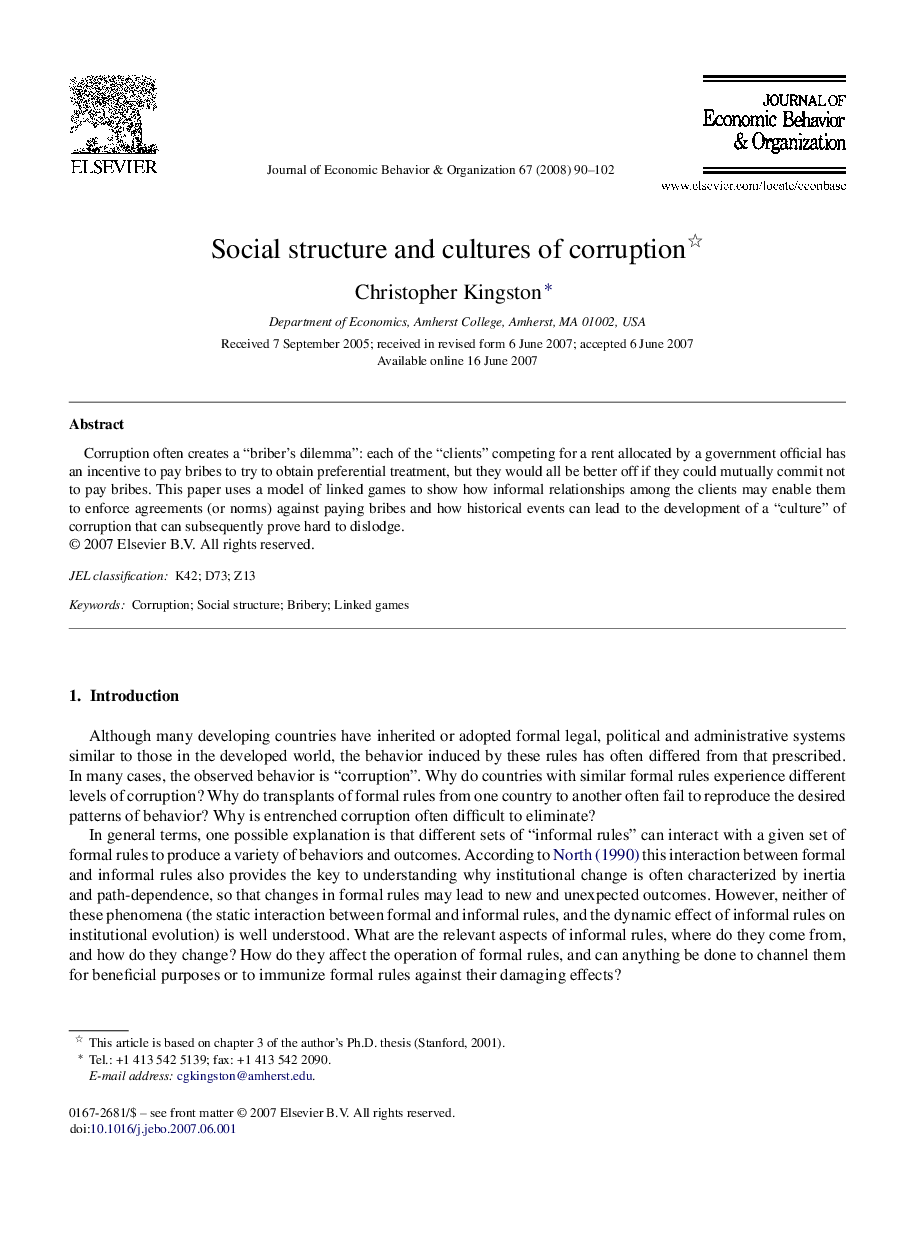| Article ID | Journal | Published Year | Pages | File Type |
|---|---|---|---|---|
| 884411 | Journal of Economic Behavior & Organization | 2008 | 13 Pages |
Abstract
Corruption often creates a “briber’s dilemma”: each of the “clients” competing for a rent allocated by a government official has an incentive to pay bribes to try to obtain preferential treatment, but they would all be better off if they could mutually commit not to pay bribes. This paper uses a model of linked games to show how informal relationships among the clients may enable them to enforce agreements (or norms) against paying bribes and how historical events can lead to the development of a “culture” of corruption that can subsequently prove hard to dislodge.
Keywords
Related Topics
Social Sciences and Humanities
Economics, Econometrics and Finance
Economics and Econometrics
Authors
Christopher Kingston,
